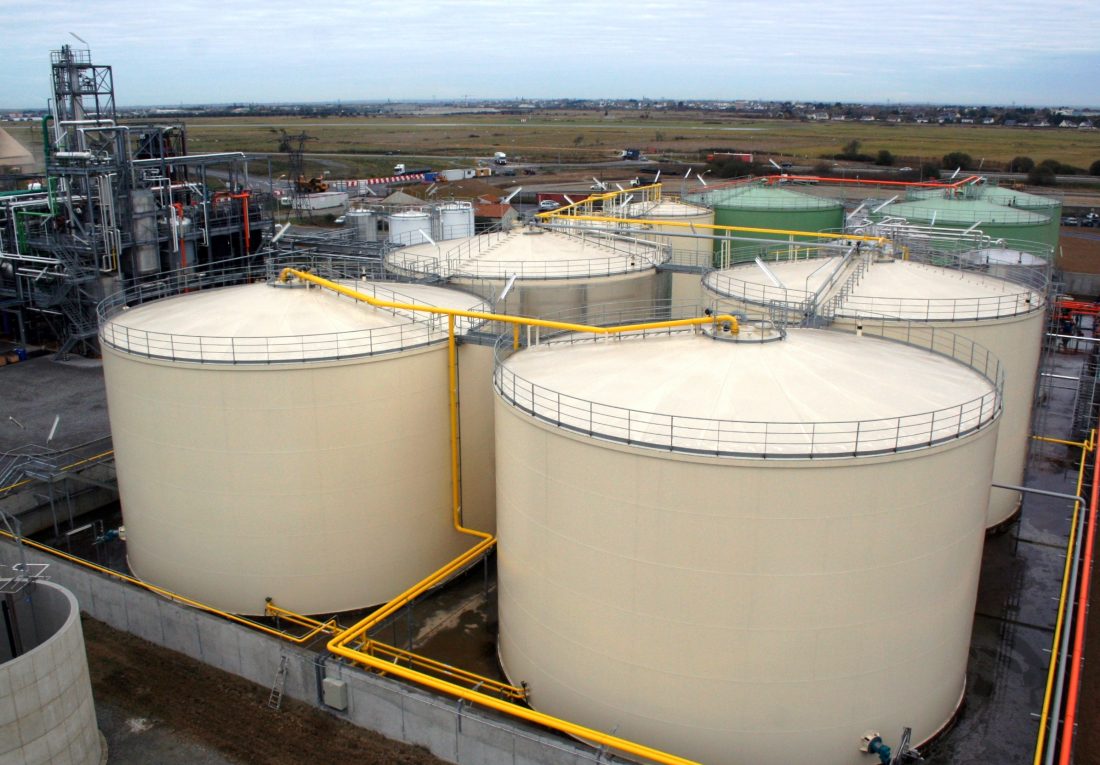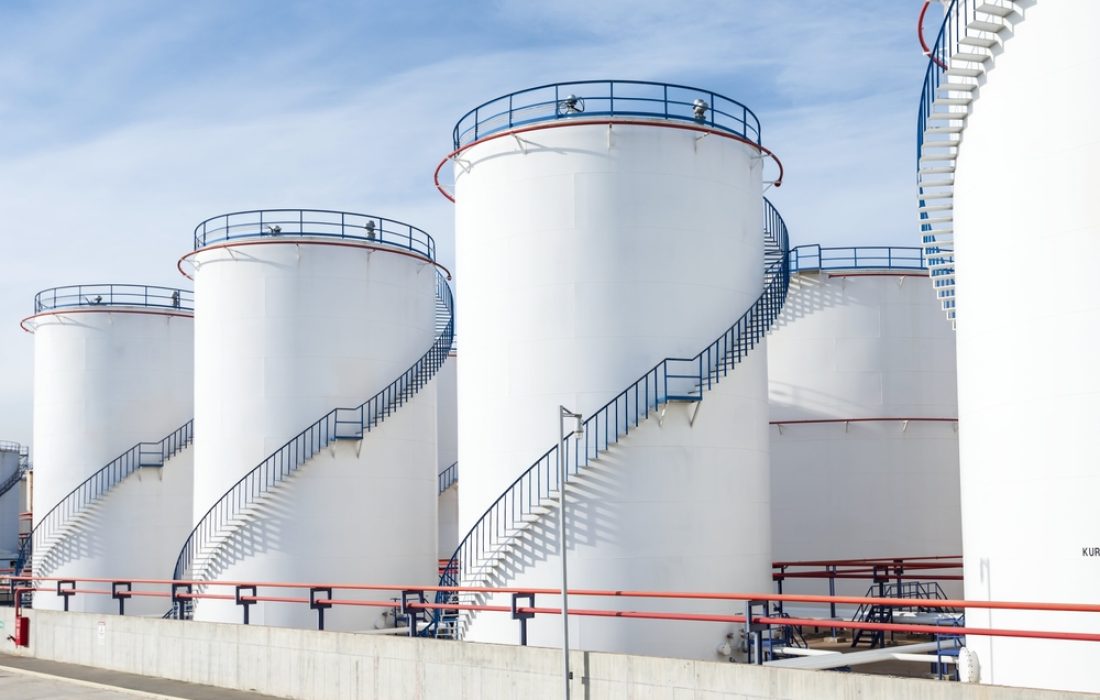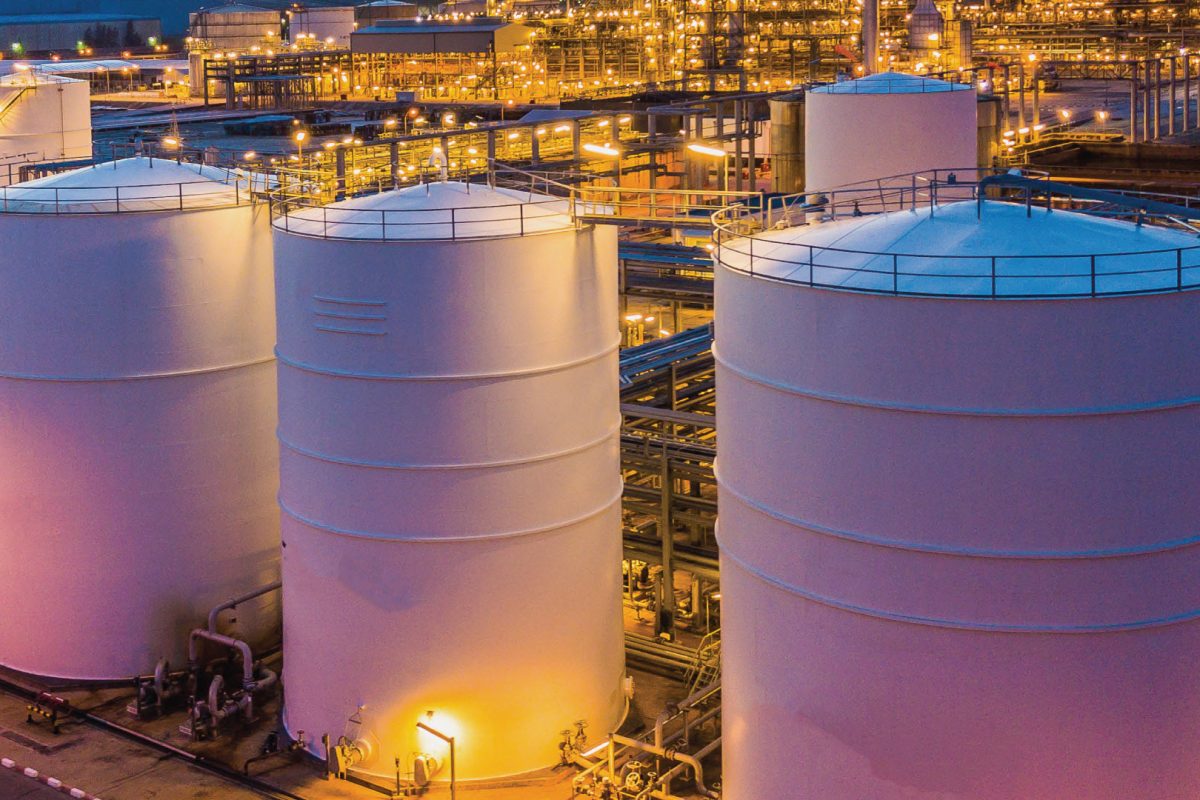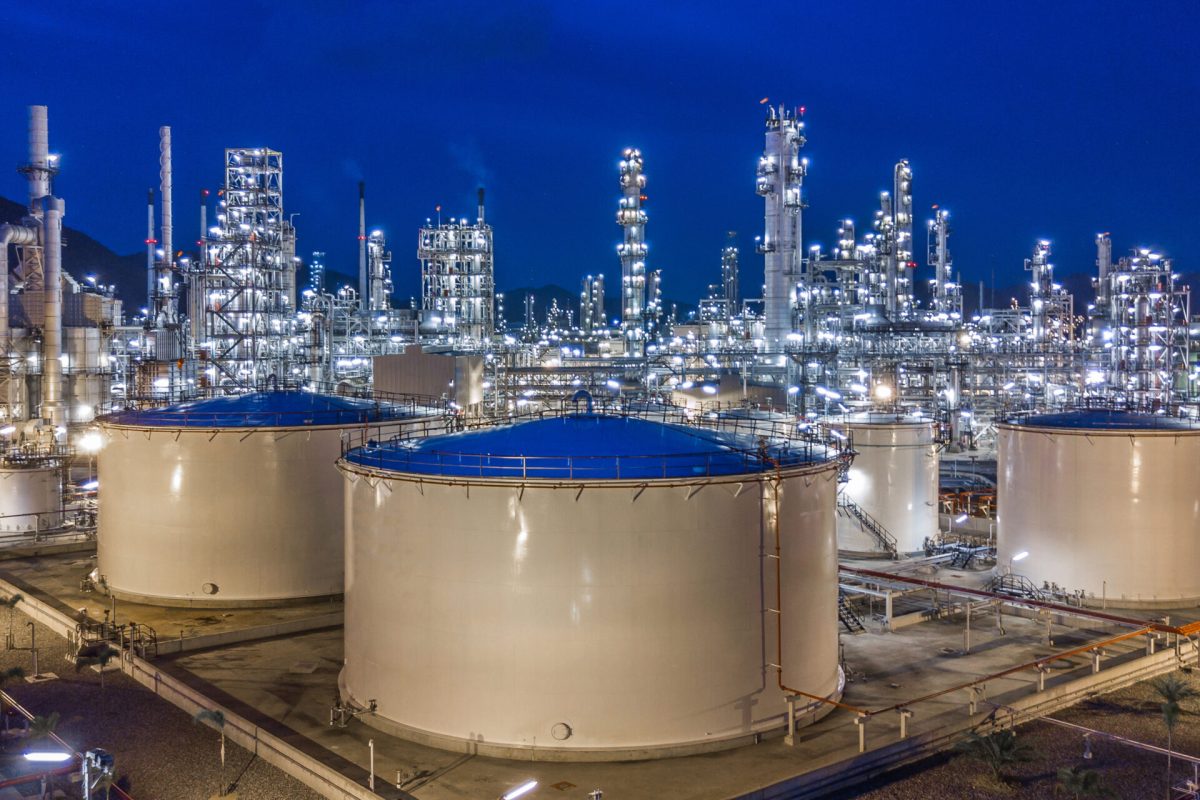STORAGE TANKS
STORAGE TANKS
We are a reputable company that produces and supplies a large selection of Tanks & Containers to meet the needs of our clients. High grade materials used in the construction of these containers guarantee their extended dependability and durability. Our products provide high levels of performance and are solidly built.
Many businesses use storage tanks for vapors, non-organic liquids, and organic liquids. The American Petroleum Institute API-650 specification is followed in the design and construction of the majority of storage tanks.
These Sun Corporation tanks can range in size from 2 to 60 meters in diameter or more. In order to control spillage in the event of a tank rupture, they are often constructed inside containment basins. Storage tanks are used for many different things, like making oil, making chemicals and petrochemicals, keeping things in bulk, and other things that use liquids or vapors.
These Sun Corporation tanks can range in size from 2 to 60 meters in diameter or more. In order to control spillage in the event of a tank rupture, they are often constructed inside containment basins. Storage tanks are used for many different things, like making oil, making chemicals and petrochemicals, keeping things in bulk, and other things that use liquids or vapors.


Benefits of Storage Tanks
Benefits of Storage Tanks
Safe Storage and Preservation: Storage tanks are engineered to preserve the integrity and quality of the stored contents. They provide a secure and controlled environment, protecting materials from external elements such as temperature fluctuations, contaminants, and atmospheric conditions.
Bulk Storage Capacity: One of the primary advantages of storage tanks is their ability to store large quantities of materials in bulk. This feature is especially beneficial for industries that require significant volumes of raw materials or end products.
Flexible Design and Size Options: Storage tanks come in various shapes, sizes, and configurations, allowing customization to fit specific needs and spatial requirements. From small-scale tanks for residential use to massive industrial tanks, the design flexibility caters to diverse applications.
Cost-Effective Solution: Utilizing storage tanks for bulk storage significantly reduces the cost of handling and transportation. By buying and storing materials in bulk, businesses can take advantage of bulk purchase discounts and minimize frequent deliveries.
Easy Monitoring and Maintenance: Modern storage tanks are equipped with monitoring systems that allow real-time tracking of the content level, pressure, and temperature. This data enables efficient maintenance and prevents issues before they escalate.
Environmental Compliance: Many storage tanks are designed to meet strict environmental regulations and safety standards. They help industries comply with environmental guidelines, preventing spills and leakages that could harm the environment.
Bulk Storage Capacity: One of the primary advantages of storage tanks is their ability to store large quantities of materials in bulk. This feature is especially beneficial for industries that require significant volumes of raw materials or end products.
Flexible Design and Size Options: Storage tanks come in various shapes, sizes, and configurations, allowing customization to fit specific needs and spatial requirements. From small-scale tanks for residential use to massive industrial tanks, the design flexibility caters to diverse applications.
Cost-Effective Solution: Utilizing storage tanks for bulk storage significantly reduces the cost of handling and transportation. By buying and storing materials in bulk, businesses can take advantage of bulk purchase discounts and minimize frequent deliveries.
Easy Monitoring and Maintenance: Modern storage tanks are equipped with monitoring systems that allow real-time tracking of the content level, pressure, and temperature. This data enables efficient maintenance and prevents issues before they escalate.
Environmental Compliance: Many storage tanks are designed to meet strict environmental regulations and safety standards. They help industries comply with environmental guidelines, preventing spills and leakages that could harm the environment.
Applications
Applications
Oil and Gas Industry: Storage tanks are extensively used in the oil and gas sector for the storage of crude oil, refined petroleum products, and natural gas. These tanks facilitate the seamless distribution of oil and gas to end consumers, ensuring a steady and reliable supply.
Chemical Industry: Chemical storage tanks are crucial for storing various chemicals safely. They play a vital role in industries such as petrochemicals, pharmaceuticals, agrochemicals, and specialty chemicals.
Water Storage: Storage tanks are widely employed for water storage in residential, commercial, and industrial settings. They store potable water for domestic use, firefighting water reserves, and water used in industrial processes.
Food and Beverage Industry: Food-grade storage tanks are used in the food and beverage industry to store liquids such as milk, fruit juices, edible oils, and food additives. These tanks maintain the freshness and quality of the stored products.
Agriculture and Farming: In the agricultural sector, storage tanks are utilized to store fertilizers, pesticides, and irrigation water. They ensure the availability of these essential resources during planting and growing seasons.
Pharmaceutical Industry: Storage tanks are vital for pharmaceutical companies to store various chemicals, solvents, and pharmaceutical ingredients used in the production of medicines and drugs.
Wastewater Treatment Plants: In wastewater treatment facilities, storage tanks hold wastewater for treatment processes, allowing for efficient treatment and proper disposal.
Power Generation: Storage tanks are used in power plants to store fuel, such as diesel, for emergency power generation.
From fuel storage in power plants to water storage in households, storage tanks continue to play a crucial role in various applications, ensuring a reliable supply and safe preservation of valuable resources.
Chemical Industry: Chemical storage tanks are crucial for storing various chemicals safely. They play a vital role in industries such as petrochemicals, pharmaceuticals, agrochemicals, and specialty chemicals.
Water Storage: Storage tanks are widely employed for water storage in residential, commercial, and industrial settings. They store potable water for domestic use, firefighting water reserves, and water used in industrial processes.
Food and Beverage Industry: Food-grade storage tanks are used in the food and beverage industry to store liquids such as milk, fruit juices, edible oils, and food additives. These tanks maintain the freshness and quality of the stored products.
Agriculture and Farming: In the agricultural sector, storage tanks are utilized to store fertilizers, pesticides, and irrigation water. They ensure the availability of these essential resources during planting and growing seasons.
Pharmaceutical Industry: Storage tanks are vital for pharmaceutical companies to store various chemicals, solvents, and pharmaceutical ingredients used in the production of medicines and drugs.
Wastewater Treatment Plants: In wastewater treatment facilities, storage tanks hold wastewater for treatment processes, allowing for efficient treatment and proper disposal.
Power Generation: Storage tanks are used in power plants to store fuel, such as diesel, for emergency power generation.
From fuel storage in power plants to water storage in households, storage tanks continue to play a crucial role in various applications, ensuring a reliable supply and safe preservation of valuable resources.


